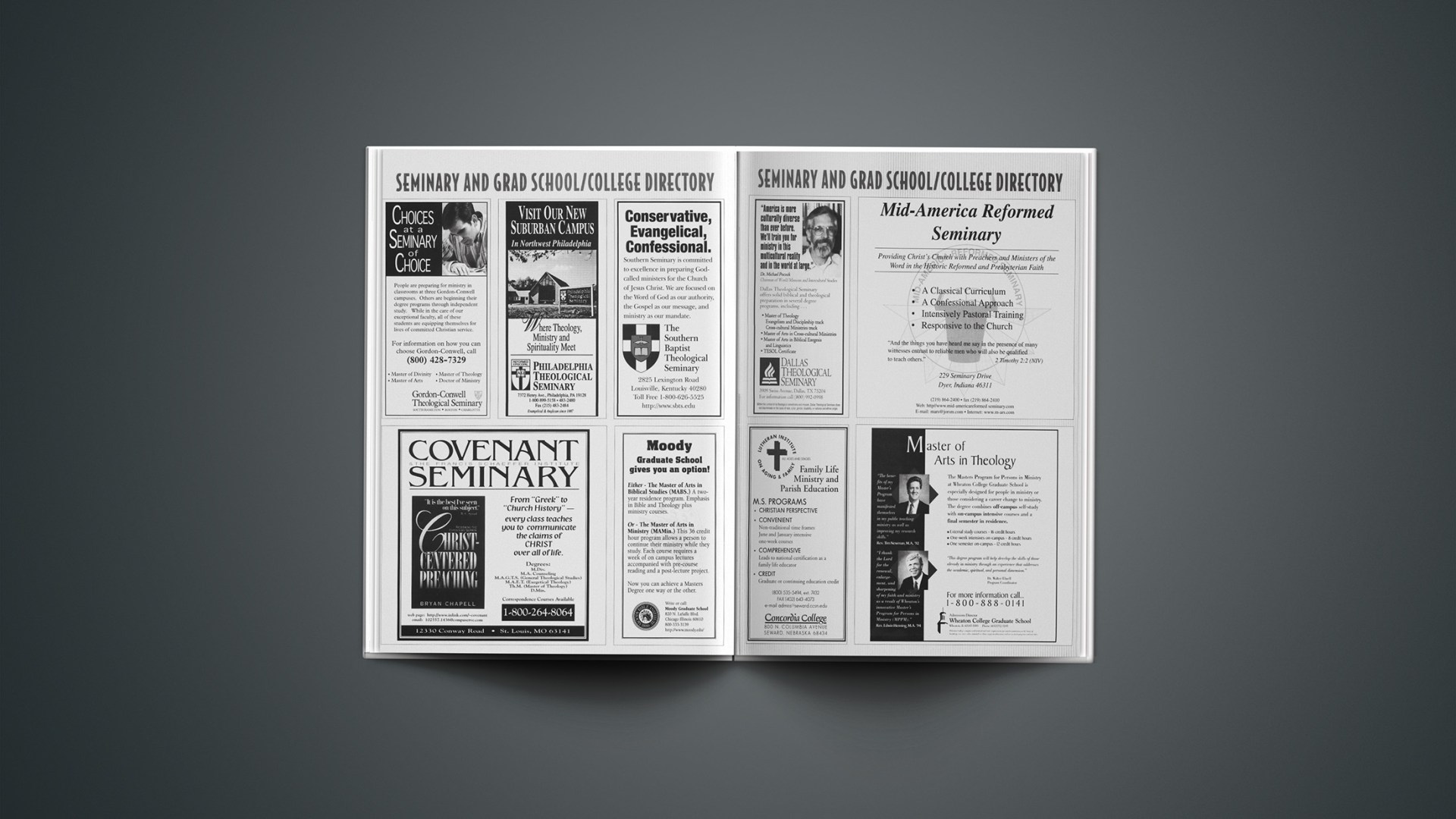With the spotlight on China’s persecution of Christians, American evangelicals are sharply divided on whether renewal of China’s status as a regular trading partner with the United States will help or harm the cause of religious freedom.
On May 19, President Clinton renewed Most Favored Nation (MFN) trading status with China, meaning that the country receives the same tariff rates on imported goods as any other regular trading partner. Congress has until August to overturn the President’s decision. If China’s MFN status had not been renewed, tariffs on Chinese goods—and Hong Kong’s after July 1—would have risen drastically. According to the Family Research Council (FRC), the wholesale price of a typical imported toy would jump to $34 from $20.
Prison Fellowship founder Charles Colson made a decision last year to boycott Chinese goods. Each day that Colson looks at the big, clunky calculator he bought instead of the more common compact ones made in China, he remembers the difficulty of fighting the persecution of Chinese Christians.
“I discovered that in some things, like hand-held calculators, it is virtually impossible not to buy things from China,” Colson says. “I ended up buying a big desktop calculator, but at least it is made in Malaysia.”
Nina Shea, director of the Puebla Program on Religious Freedom for Freedom House in Washington, D.C., says such incidents illustrate “why China is the foremost example of the human-rights dilemma of how to treat a trading partner.”
RELIGION TO THE FOREFRONT: Evangelicals and Roman Catholics have taken center stage in what has become a pivotal foreign-policy debate. FRC President Gary Bauer says, “This is the most high profile and significant mobilization of conservative Christians on a foreign-policy issue since the fall of the Soviet Union.”
While Shea believes “interest in human rights had fizzled by 1990,” the MFN debate has reignited the controversy.
Since the National Association of Evangelicals issued its Statement of Conscience in January 1996, momentum has been building to alleviate persecution of Christians. At the same time, China unleashed a campaign called “Strike Hard” that has resulted in numerous arrests of Christians (CT, Oct. 28, 1996, p. 97).
Late last year, Bauer saw an opportunity to raise the persecution issue by using the annual debate over whether to renew China’s MFN status. The arrest of Peter Xu, one of the national leaders of Chinese Christians, during Easter Week provided a vivid example of Chinese practice to Christian critics.
WRONG STRATEGY? However, some evangelical leaders have decried the anti-MFN movement as the wrong way to deal with China. “People suffer when China becomes isolated and hostile,” says Daniel Su, a Christian from Fujian Province working with China Outreach Ministries. “Revocation could well be the beginning of another decades-long cold war.”
Instead, Su points to the existing policy of “constructive engagement” with China as having improved human rights, despite some setbacks along the way.
Brent Fulton, associate director of the Institute for Chinese Studies at Wheaton (Ill.) College, says, “Public shaming of the Chinese government by American Christians will only serve to strengthen the official Chinese perception that Christians are a threat to China’s stability.”
Shea strenuously disagrees. “The Chinese bluster and bully, but if they think you are tough and mean it, they back down,” she says. “The United States got tough on the theft of computer software, and the Chinese backed down.”
Yet Christians on both sides of the MFN debate are supporting the Freedom from Religious Persecution Act cosponsored by Rep. Frank Wolf (R-Va.) and Sen. Arlen Specter (R-Pa). The legislation, introduced May 20, would establish a director of the Office of Religious Persecution Monitoring under the President and specify penalties for countries with widespread religious persecution.
BUSINESS BACKING: Some of the main proponents of renewing MFN status for China are business people. Bauer’s anti-MFN-renewal campaign provoked a letter from a member of the DeVos family, a major financial supporter of FRC and a cofounder of Amway. Amway Asia Pacific, a publicly traded company based in Hong Kong, had $700 million sales in 1996.
The economic restructuring of China has been hailed by free-market conservatives as a step toward prosperity, eventual liberalization, and reason enough to renew MFN status. Critics point out that the new economics in China includes human-rights abuses and a vast population of insecure poor. Shea notes that in 1995 the Chrysler Corporation fired a worker for missing two weeks of work without considering that he had been in jail as a penalty for praying.
In recent years, the Chinese government has unleashed a sometimes fierce campaign to force “house church” or “independent church” Christians into state-regulated congregations. The United Front Department, the powerful overseer of religious and other civil-society affairs for the Chinese Communist party, has developed a strategy of offering American missions to China opportunities to minister as long as they are conducted through carefully constructed channels of the state-run church.
Copyright © 1997 Christianity Today. Click for reprint information.










